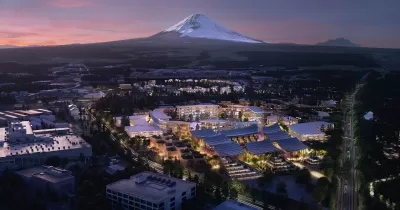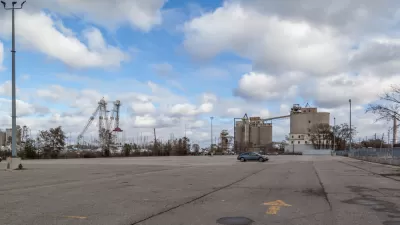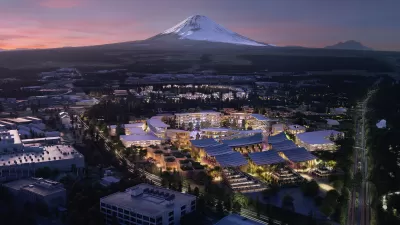Checking in with Toyota's plans for an interconnected smart "city of the future" means considering how their approach might differ from other attempts at similar projects.

Corporate interest in smart city technology has brought numerous concepts and potential projects into the public spotlight in recent years with a notable lack of success in implementing new technologies in a robust way. Where others (most notably, Sidewalk Labs) have failed, Toyota has big plans to create a new, interconnected smart city, a "city of the future" to stand as a proof of concept for such innovations as autonomous vehicles and smart houses.
"The 175-acre Woven City project, to sit at the base of Mt. Fuji, would house some 2,000 residents and will be outfitted with connected infrastructure, clean buildings and artificial intelligence (AI)," writes Jason Plautz on the ambitious scope of the project. Some onlookers think that Toyota could have more success than other corporations who have spearheaded smart city development, in part due to the lessened regulatory requirement involved in building a city from scratch.
Public concern has put a damper on smart city development projects in the past. Alphabet's Sidewalk Labs planned a development on the waterfront of Toronto that sought to "showcase everything from mass timber buildings to adaptive pavement that would accommodate all forms of mobility," but the "project was dogged with concerns about how the company would store and protect data collected from residents," Plautz reflects.
After Toyota's January announcement of plans for the spawning of the Woven City, very few details about the project have been revealed, says Plautz. Nearly a year later, ears are perked for more information about the viability of the project and its implications for smart city technology in other cities worldwide.
FULL STORY: Can Toyota succeed where Sidewalk Labs failed?

Alabama: Trump Terminates Settlements for Black Communities Harmed By Raw Sewage
Trump deemed the landmark civil rights agreement “illegal DEI and environmental justice policy.”

Study: Maui’s Plan to Convert Vacation Rentals to Long-Term Housing Could Cause Nearly $1 Billion Economic Loss
The plan would reduce visitor accommodation by 25% resulting in 1,900 jobs lost.

Planetizen Federal Action Tracker
A weekly monitor of how Trump’s orders and actions are impacting planners and planning in America.

Federal Homelessness Agency Places Entire Staff on Leave
The U.S. Interagency Council on Homelessness is the only federal agency dedicated to preventing and ending homelessness.

Restoring Northern India’s Himalayan ‘Water Temples’
Thousands of centuries-old buildings protect the region’s natural springs and serve as community wells and gathering places.

Milwaukee to Double Bike Share Stations
Bublr Bikes, one of the nation’s most successful, will add 500 new e-bikes to its system.
Urban Design for Planners 1: Software Tools
This six-course series explores essential urban design concepts using open source software and equips planners with the tools they need to participate fully in the urban design process.
Planning for Universal Design
Learn the tools for implementing Universal Design in planning regulations.
Caltrans
Smith Gee Studio
Institute for Housing and Urban Development Studies (IHS)
City of Grandview
Harvard GSD Executive Education
Toledo-Lucas County Plan Commissions
Salt Lake City
NYU Wagner Graduate School of Public Service




























